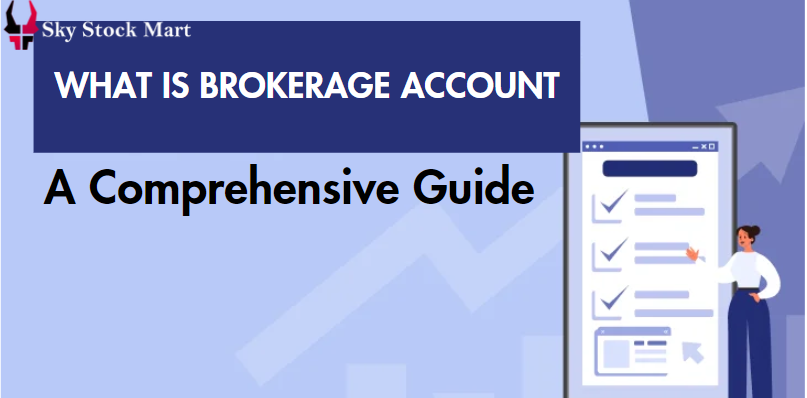Introduction:
Brokerage Accounts
In the world of investing, brokerage accounts serve as the gateway to the financial markets, allowing individuals to buy and sell a variety of financial instruments. Whether you’re a seasoned investor or a newcomer to the investment scene, understanding what brokerage accounts are and how they function is fundamental to your financial journey. In this blog, we’ll explore the ins and outs of brokerage accounts, shedding light on their purpose, types, and how to choose the right one for your investment goals.
What is a Brokerage Account?
A brokerage account is a financial account that allows an investor to buy and sell various securities, such as stocks, bonds, mutual funds, and exchange-traded funds (ETFs). These accounts act as intermediaries between individual investors and the stock market, providing a platform for executing trades.OPEN FREE DEMAT ACCOUNT
Types of Brokerage Accounts:
- Cash Accounts:
- Investors use their own funds to buy securities.
- No margin (borrowed money) is involved.
- Transactions are settled with cash.
- Margin Accounts:
- Investors can borrow money from the brokerage to buy additional securities.
- Allows for leveraging investments.
- Involves interest charges on borrowed funds.
- Retirement Accounts:
- Include Individual Retirement Accounts (IRAs) and 401(k)s.
- Offer tax advantages for retirement savings.
- Have contribution limits and withdrawal restrictions.
Choosing a Brokerage Account:
- Fees and Commissions:
- Consider transaction fees, account maintenance fees, and any other associated costs.
- Some brokerages offer commission-free trades.
- Investment Options:
- Assess the range of investment products available, including stocks, bonds, mutual funds, and ETFs.
- Ensure the platform aligns with your investment preferences.
- Research Tools and Educational Resources:
- A good brokerage should provide research tools and educational resources.
- Access to market analysis, financial news, and investment research can enhance your decision-making.
- User Interface and Customer Support:
- A user-friendly platform and responsive customer support are crucial.
- Ensure the brokerage’s interface meets your preferences and that assistance is available when needed.
Security and Regulation:
- SIPC Insurance:
- The Securities Investor Protection Corporation (SIPC) provides limited protection against the loss of cash and securities held by a customer at a financially troubled brokerage.
- Regulatory Compliance:
- Verify that the brokerage is regulated by relevant financial authorities.
- Compliance ensures adherence to industry standards and protects investors.
Conclusion:
Brokerage accounts are the cornerstone of individual investing, offering a gateway to the vast world of financial markets. By understanding the different types of accounts, considering essential factors in choosing a brokerage, and prioritizing security, investors can make informed decisions that align with their financial goals. Whether you’re looking to build a retirement nest egg or actively trade in the stock market, a well-chosen brokerage account can be a powerful tool on your journey towards financial success.


